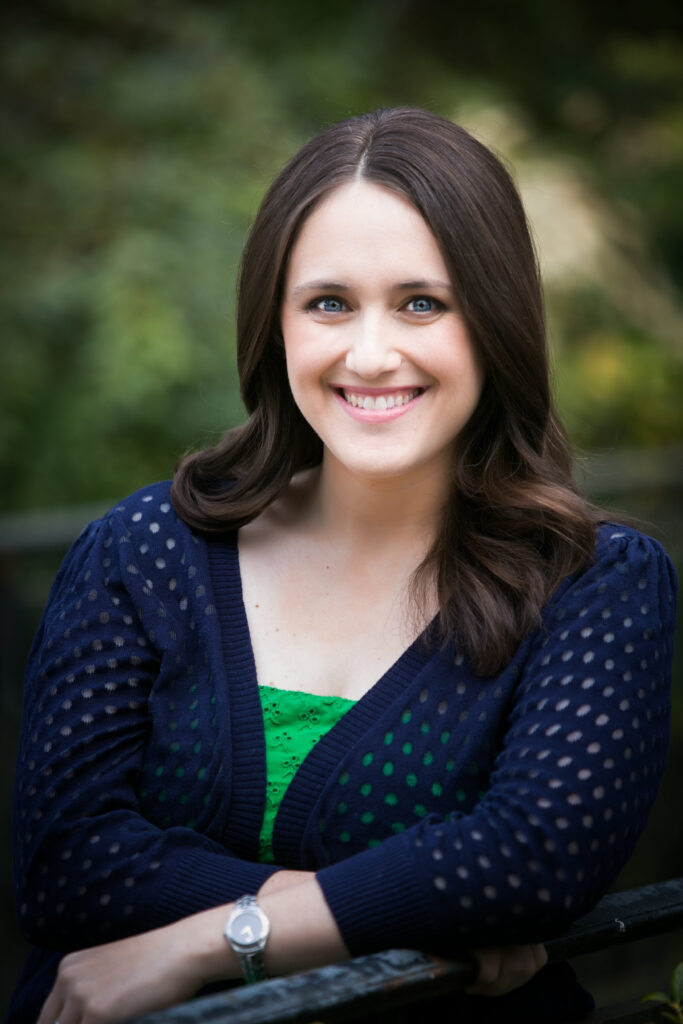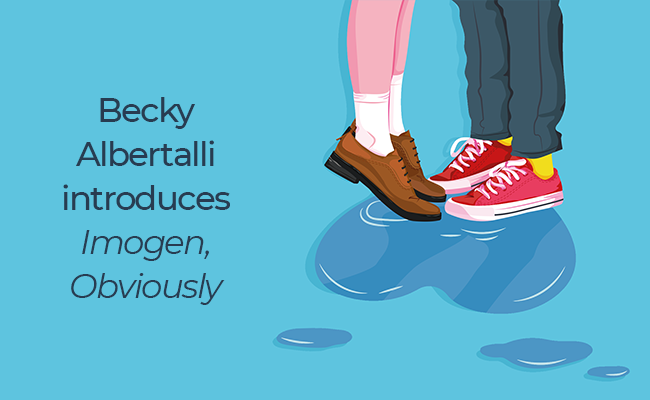“If Simon was me throwing a ball into the air, Imogen is my attempt to catch it.”
Becky Albertalli
As far as I know, coming out isn’t something that straight kids generally worry about.
I was a thirty-year-old ‘straight’ woman when I wrote that.
Denial, for me, was like a game of dot-to-dot with no lines.
Years and years of moments, each completely disconnected from the last. A girl from after-school dance. Gym class. Summer camp. College. A tiny pull. A daydream. Never a crush, though. Always just a random anomaly. One big pile of anomalies.
Because I was straight. Obviously. I was an ally. Me, with my stack of Indigo Girls CDs and an encyclopedic knowledge of RENT. I watched gay movies, wrote gay fanfiction. Once I did an independent study project on queer anime characters. I spent my twenties volunteering with queer kids. My doctoral dissertation was about queer affirming therapy. And then I wrote a book.
To talk about Imogen, first I have to talk about Simon.
My debut novel, Simon vs the Homo Sapiens Agenda, came out in 2015. The movie version, Love, Simon, came out three years later. What followed is documented online, in more detail than I’d ever imagined or hoped, but the short version is this: I thought I was straight. I said I was straight. And, increasingly, my straightness became problematic for a subset of readers.
Why is straight the default? Everyone should have to declare one way or another, and it should be this big awkward thing whether you’re straight, gay, bi, or whatever.
I wrote that. I believed it. I was a straight woman who’d written outside of my lane, and I was terrified of hurting people, of overstepping. And I thought being transparent about my straightness was the absolute least I could do. So when the question was asked—in interviews, on twitter, in packed auditoriums—I answered.
Until I stopped knowing the answer.

Tiny, buried moments were resurfacing. Blurry feelings became sharper, and I was starting to connect certain dots. I mined my memories for clues, stacked them up side-by-side. I scoured the internet, took every quiz I could find. I was a living, breathing queer awakening television montage.
But the discourse had me twisted in knots. Did I actually have a crush on that actress—or was I culturally appropriating queerness? Secretly. Telepathically. Was I talking myself into queerness to seem more interesting? So people on the internet would stop being mad that I wrote queer books? And if I were actually queer, shouldn’t I have realized it by now?
In 2020, I came out as bisexual. Because of course I was. Of course I am.
It wasn’t the coming out story I’d have written for myself. There was scrutiny and pressure. There were twitter threads from strangers echoing all my secret doubts and fears. But it felt inevitable. After all, I’d published a book. I’d called myself straight. I’d boxed myself in without even realising I was doing it.
But how? How did I miss it? How could a person just—not know?
Denial. Repression. Compulsory heterosexuality. I know they exist. I know what they mean. But what does it feel like when your brain hides a piece of itself? What does it feel like when things start to slide into focus?
Enter Imogen.
She’s introspective. She’s observant. She consumes queer media, reads queer stories, absorbs queer discourse. And she’s surrounded by queer people. She’s an ally. Or, she thinks she’s an ally. But the truth is, she’s boxed herself in, just like I did.
This is a book about a girl who steps outside that box for one weekend. It’s a book about disrupting your own default.
If Simon was me throwing a ball into the air, Imogen is my attempt to catch it.
I hope she lands with you, too.



